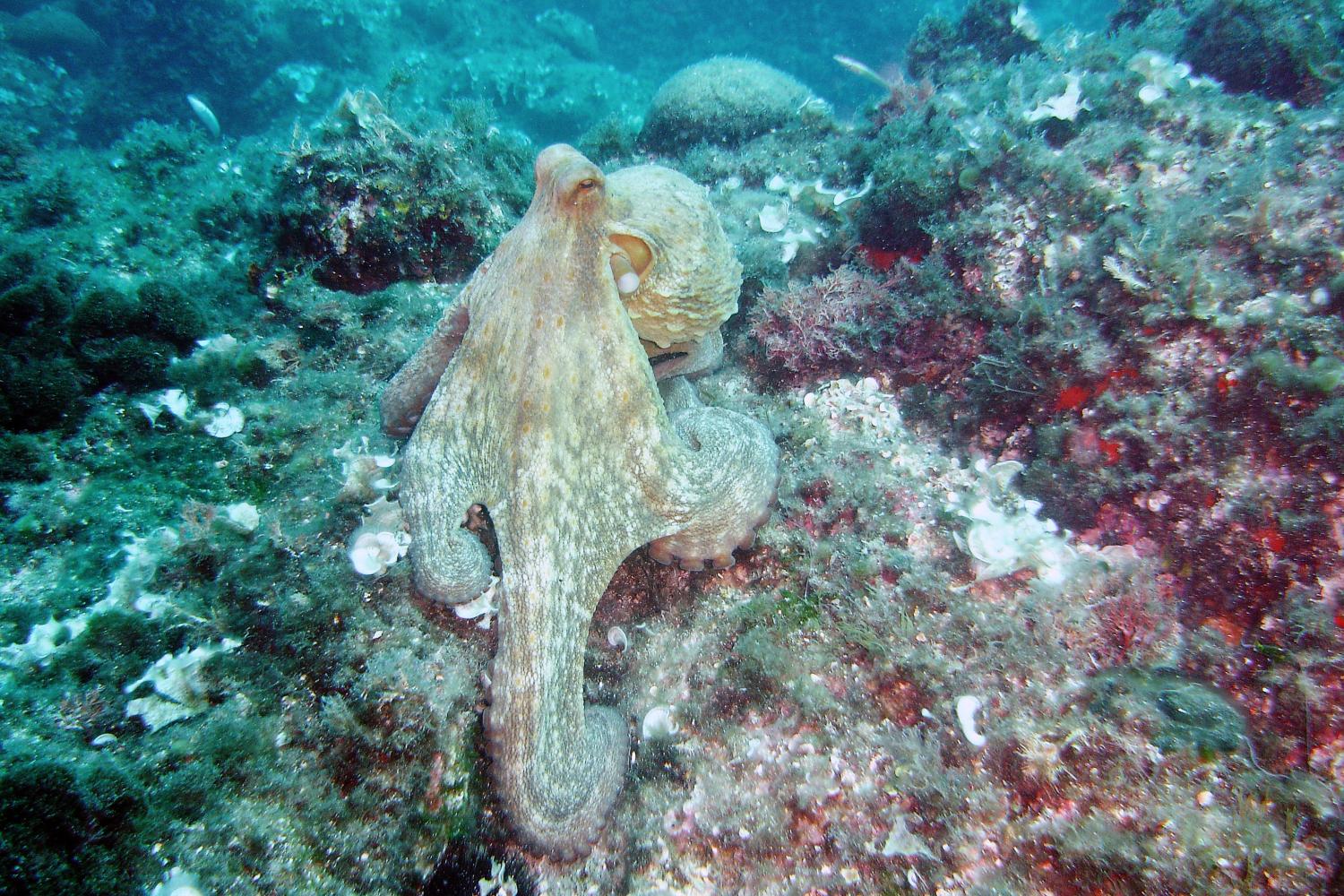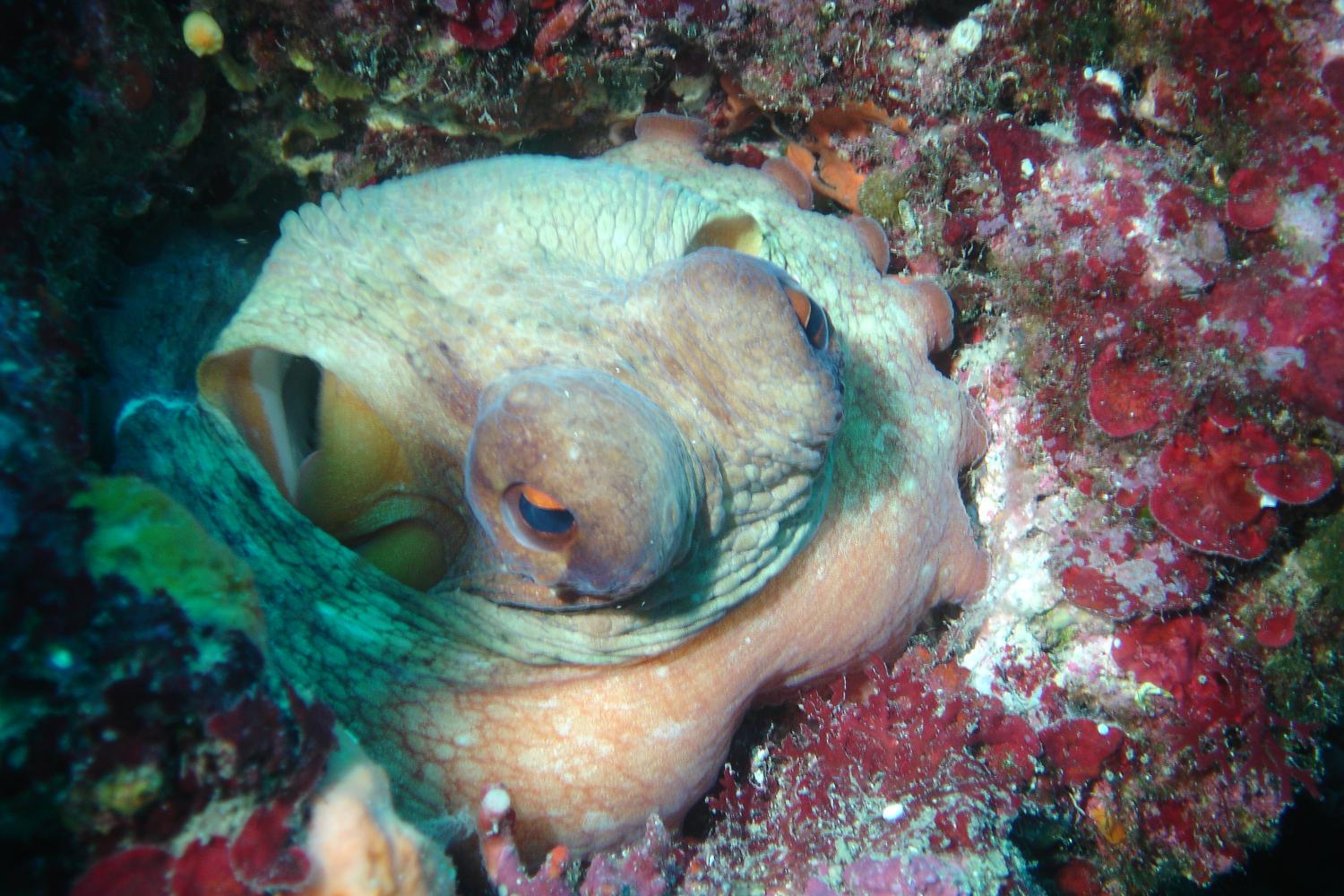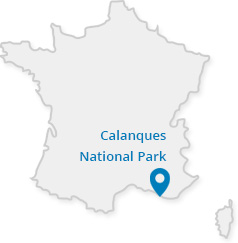Description
It has eight tentacles, nearly 240 suckers and an enormous brain: this is an octopus! This very intelligent Cephalopoda can instantly change colour and the texture of its skin to camouflage itself, spray clouds of ink to deceive its predators and regrow any tentacles that have been amputated. Its mouth is a powerful beak allowing it to crush the shells of crabs and other molluscs upon which it feeds.
Scientific name
Octopus vulgaris
Natural habitats
Rocky seabeds
Did you know?
It has siphons, or funnels, on its head from which is squirts water enabling it to zoom through the water at racing car speed.
Conservation stake
Strong
Threats
- Over-fishing
- Pollution and changes to its environment
Conservation management initiatives
Fishing is prohibited in the heart of the National Park’s marine area from 1 June to 30 September during the octopus breeding season.
How can I help to protect it?
- I comply to the National Park’s rules that restricts fishing to 3 individuals per day and per fishermen except in zones where fishing its is prohibited and during its breeding season
- I avoid physical contact with this species






